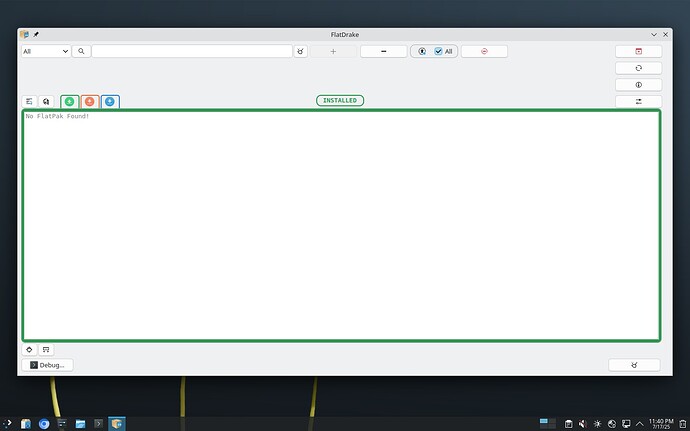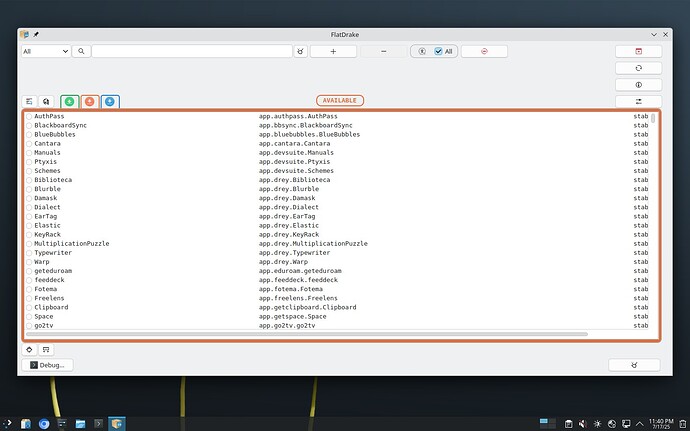I haven’t had a chance to watch it yet, but…
How about FlatDrake?
That’s what I’ve been using instead of Discover, I’ve seen a few posts recommending people not use it.
Flatdrake is for flatpaks, some people just don’t like the way flatpak operates. Some reasons are technical and do make sense, but aren’t necessarily crucial to everyone. Some reasons are ideological and you may not care one way or the other. If it works for you and you don’t mind using it, keep on. I personally dislike flatpaks because they don’t seem to work as well as natively compiled packages from our repos, but some software is just not in our repos yet, so I still use flatpaks.
I think I remember reading somewhere, a post by Wilson Philips, IIRC, that flatpack installs duplicate libraries instead of using common libraries.
Or just open a terminal:
flatpak search package
sudo flatpak install package
sudo flatpak update
sudo flatpak remove package
That is what I have been doing if there is no other option but to install a flatpak. I find it faster than a GUI for flatpaks. Your mileage may vary.
One “feature” of flatpaks that nobody mentions is when working in the terminal, you don’t have to specify the entire package name. For instance, when I installed XnView MP:
flatpak search xnview
sudo flatpak install xnview
Then select the proper option, or ‘0’ to exit.
Very true, and not just with OM. I found the exact same issues in the past, before Lunduke, when I was using Kubuntu and openSUSE. Nothing changed between distros. Definitely an issue with flatpaks across the board. My problems are when accessing SMB local network shares. Flatpaks definitely have problems coping with more than a single file at a time. Working with a batch of files is out of the question. My solution is to just copy the files to a folder on the local drive and deal with them. Then when finished with file content modifications, send them back to where they originated.
After reading this, I believe Wilson Philips is correct.
Yes, third party software in general normally comes with it’s own library packages. OM software uses shared libraries, I thing this is the case with most any Linux distro.


